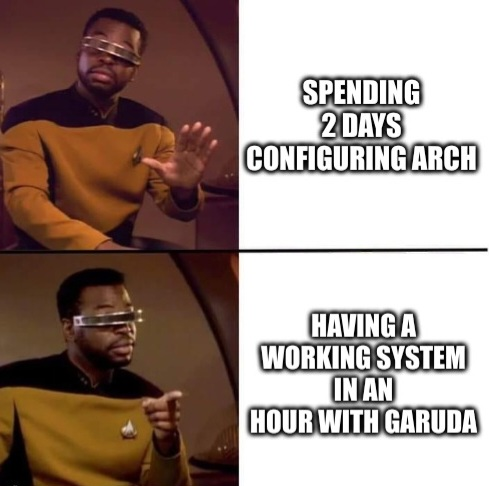this post was submitted on 27 May 2024
370 points (88.2% liked)
linuxmemes
20880 readers
8 users here now
I use Arch btw
Sister communities:
- LemmyMemes: Memes
- LemmyShitpost: Anything and everything goes.
- RISA: Star Trek memes and shitposts
Community rules
- Follow the site-wide rules and code of conduct
- Be civil
- Post Linux-related content
- No recent reposts
Please report posts and comments that break these rules!
founded 1 year ago
MODERATORS
you are viewing a single comment's thread
view the rest of the comments
view the rest of the comments

I think the fundamental issue here is that you conflate the concepts of reliablility and stability. Those are not the same. Stability in distros is a question of how much they restrict change during support cycles in order to not be a moving target for developers and system integrators. Fundamentally a rolling release can't be stable. It can absolutely be reliable to use, but you wouldn't use it as a basis for an embedded system you're trying to develop.
I've heard the counter argument from developers that jumping from a two to four years old codebase is an absolute nightmare to deal with and moving to a rolling release means not dealing with the burden of migrating over to a newer version and implementing small patches when needed.
Entire fixes, features, and upgrades miss the deadline and have to wait because of a process like this. It's still a moving target but on a different scale. They try to roll the newest packages possible into the release meaning the majority of the bug fixing and testing happens mere months before release.
It's also a burden on bigger teams especially when they build their own automations and tooling. why Google devs moved to a rolling release.
It's a solid concept but so much changes all at once it's a big project to migrate to a newer version. It frontloads a lot of the work sometimes to the point of delaying support for the newer version. Unless you build for Debian unstable and work backwards from there (basically rolling) but doesn't guarantee back ports don't break the software.
It only benefits users who need a set it and forget it solution. I chose it for my server because I don't want to touch it but I dread the day I have to upgrade the whole system and something small like the zfs filesystem, docker, or my samba setup suddenly has issues and makes it unbootable like that kernel update that bricked my Nvidia drivers a couple months ago. I'm hoping that's a fluke because it happened at the worst time for me.
It's four years from now, I don't have to think about it yet.